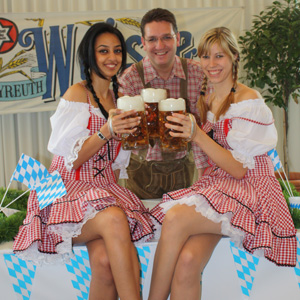Hotel Atlas
*** Hotel Atlas
price from 1. 120,- CZK / person / night with breakfast, center – Schwabing
Oktoberfest – price from 2. 250,- CZK + High Season – Fairs, conference, advent…
OKTOBERFEST HERE
Munich
Munich
(German: Munich, starobyle Munich – The monks – the monks) is the capital city of Bavaria, which lies in the foothills of the Alps on the River Isar and 1,3 million inhabitants as the third largest city in Germany (after Berlin and Hamburg)
Munich constitutes one of the 23 center of the Free State of Bavaria. Among German cities is a city with the highest population density.
The highest point is Mount Warnberg cities in the urban district 19 s 579 m n. m., lowest point 482 m n. m. Schwarzhölzl in northern urban district Feldmoching.
Town River Isar from southwest to northeast with a total length 13,7 km. On the river islands are known Museumsinsel with Deutschen Museum and in the immediate vicinity takyPraterinsel. In Munich, but also in the vicinity there are many smaller and larger lakes, as např.Ammersee, Wörthsee or Starnberger See. Another river flowing through Munich is Würm, which flows from Lake Starnberger, another stream flowing west Hachinger Bach Munich – flows from the southeast to Munich at Perlach and flows north through Neuperlach, as well as from the Isar separating Eisbach, Auer Mühlbach, which after separation from Isar flows through Munich Zoo, as well as stream Brunnbach. Urban streams are located primarily around the Isar, some also flowing through the center, even though most of the flow through underground pipes or were due to underground construction dried. The Munich lakes include. Kleinhesseloher See in the English Garden, lake in the Olympiapark or farther north away Lerchenauer, Pheasantry- and Feldmochinger See, which are separated by just a few hundred meters. In the south, near the left bank of the Isar lake Hinterbrühler See.
The embryo Mnichova the church Petersbergl; there was already 8. branch century monks from Tegernsee. Since Munich already existed at that time, date of the city was estimated from the last historical record.
The first mention of Munich as Villa Munichen comes from the 1158, after the Bavarian and Saxon duke Henry the Lion left near the seat of the monks at the monastery Tegernsee build a bridge over the river Isar in place dnešníhoLudwigsbrücke. He left but to destroy the most northerly of the Bishop of Freising at Oberföhring, order to capitalize on the rich salt trade in Augsburg. In 1214 – 1217 Munich received municipal rights.
Year 1180 Henry the Lion was given by the Emperor to the imperial spells and was confiscated, including Bavarian duchy. After this imperial fief, including Munich granted Wittelsbachům. In 1255 was split race on branch Palatinate (held Upper and Lower Palatinate, falckraběte title and electoral vote) and Bavarian (Upper Palatinate Bavaria without a ducal title). Then moved to Munich Bavarian Wittelsbachové, where they lived until the end of the First World War. City won the second wall, original ducal castle (dnes Alter Hof), began to build the palace, some of which still exist today.
as October fest
Oktoberfest is known as the biggest beer festival of the world. Year after year, arriving around six million people visit the Oktoberfest grounds 64akrový Theresienwiese meadow. Asi 70 % people are from Bavaria, other people from other countries, such as Italy and other European countries. In recent years, begins to discover many overseas visitors. Tradičtí visitors wear Bavarian hats with tufts of goat hair and traditional Bavarian costumes.
Period
Oktoberfest starts since 1872 September. It starts on Saturday and lasts 16 days. Ends on the first Sunday in October. Pokud je ovšem tato neděle 1. or 2. October, so festival continues until the day of German statehood (3. October).
Numbers Oktoberfest










